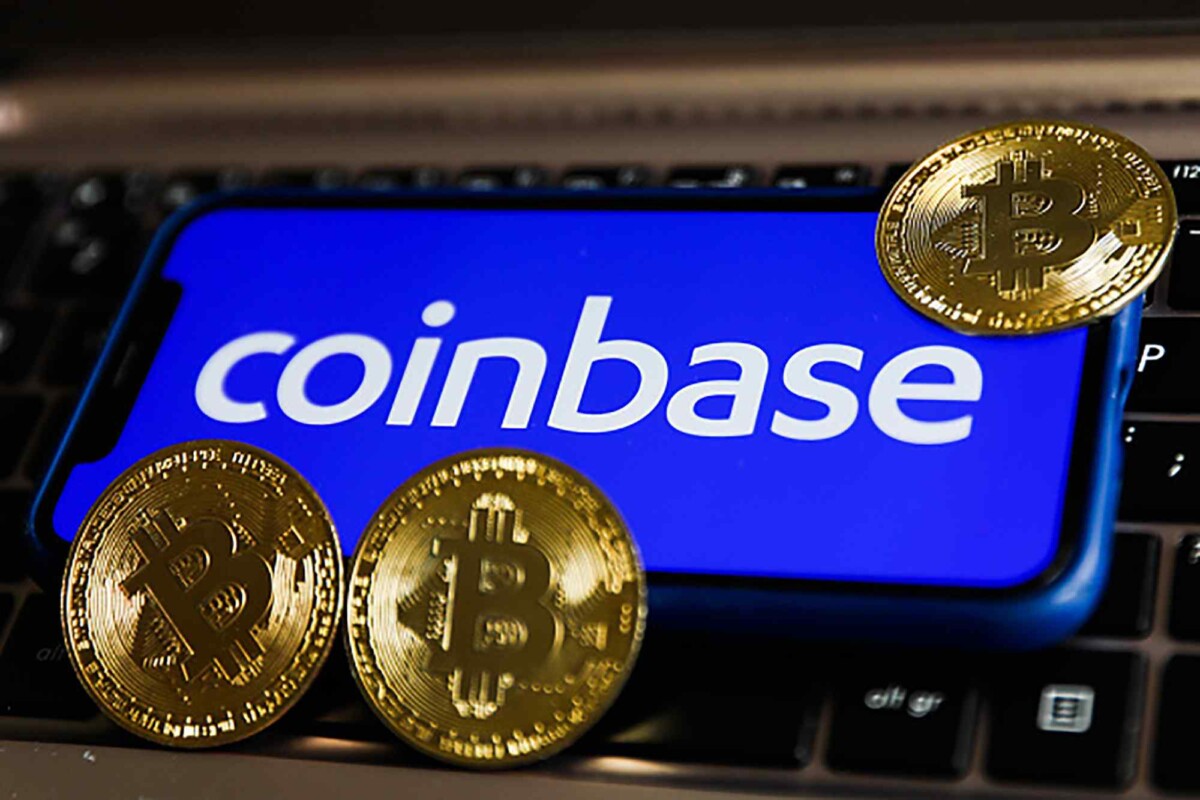Introduction
Recent legal actions involving Coinbase have raised doubts about the Bitcoin giant’s honesty and reliability. Ishan Wahi, a former Coinbase product manager, is accused of engaging in insider trading. The exposure of Wahi’s wrongdoing has sparked worries regarding the possible consequences for Coinbase’s image, business methods, and the entire cryptocurrency sector. Within this framework, we investigate the Coinbase insider trading incident in depth, looking at how it affected the firm, its customers, and the ever-changing crypto regulatory world.
Coinbase’s History
Coinbase Standing Out As A Leading Crypto Exchange
Among the world’s most well-known bitcoin exchanges, Coinbase stands out. It allows users to buy, sell, and trade a variety of crypto assets through user accounts on the website. Coinbase, with its stellar reputation as a platform, was instrumental in easing trades in the rapidly growing bitcoin industry. Coinbase was the go-to platform for many newcomers to the bitcoin market because of its large user base, intuitive design, and central role in the digital asset ecosystem.
Policies On The Confidentiality Of Crypto Asset Listings
The listing of new cryptocurrency assets on Coinbase’s exchange was subject to strict confidentiality requirements, which were fundamental to the company’s operations. The ever-changing cryptocurrency market meant that the value of existing assets may fluctuate wildly whenever new ones were added to the network. In order to keep the market honest and stop anybody from getting an unfair advantage, Coinbase forbade its workers from sharing any knowledge about future listings. This secrecy was an effort to level the playing field in the cryptocurrency marketplaces and was also an internal policy.
How Announcements Of Coinbase’s Listing Affect Market Value
The listing announcements made by Coinbase were significant not only for the platform but also for other reasons. Coinbase had considerable sway over market sentiment and values due to its prominence in the bitcoin business. In many cases, the market value of a crypto asset would skyrocket after Coinbase announced its intention to list it. With the market reacting as it did, the significance of Coinbase’s statements was highlighted, setting the stage for someone with early knowledge of the listings to potentially profit financially. Therefore, keeping these developments under wraps was critical for the security of the bitcoin market as a whole and for Coinbase’s internal operations in particular.
The Position Held By Ishan Wahi At Coinbase
Role As Asset Listing Team Product Manager
Ishan Wahi played a key role in Coinbase’s success while working as a product manager on the asset listing team. When it came to choosing which digital assets would be accessible via Coinbase’s exchanges, Wahi was a crucial cog in the extremely secretive wheel. In his job as product manager, he was instrumental in the platform’s decision to incorporate more bitcoin assets. Being at the core of Coinbase’s strategic aspirations, Wahi had first-hand knowledge of the anticipated listings and their scheduled publicization
Exclusive Knowledge Of Future Crypto Asset Listings
As a result of his position, Wahi was privy to specifics about the cryptocurrency assets that Coinbase intended to list and when the public announcements regarding these listings would be made. One of the biggest bitcoin exchanges in the world, Coinbase, handled such data with the highest secrecy. Due to the volatile nature of the cryptocurrency market, asset prices usually surged after Coinbase made its pronouncements. Because of his position of power and the sensitive information he had access to, Wahi may have taken advantage of market dynamics to his advantage.
Breach Of Confidentiality By Sharing Inside Knowledge With Unauthorised Parties
As a Coinbase member, Ishan Wahi broke the company’s unambiguous policies and moral principles by giving private information to unrelated parties. His sibling Nikhil Wahi and close friend Sameer Ramani had access to confidential company information as a result of his conduct. There were multiple instances of this betrayal of trust between the month of June 2021 and April 2022. If Wahi hadn’t leaked material information about Coinbase’s upcoming cryptocurrency asset listings, his colleagues might have made money by trading on the expected market reaction to the company’s public statements.
Wahi’s refusal to complete his responsibilities not only damaged Coinbase’s reputation but also supported an illegal scheme that benefited the participants directly. Anyone considering engaging in insider trading in the bitcoin industry should be wary of these serious infractions and the ensuing legal proceedings.
The Insider Trading Scheme

The Partnership Between Ishan Wahi, Nikhil Wahi, And Sameer Ramani
Ishan Wahi, the former product manager at Coinbase, abused his trusted position by engaging in sophisticated insider trading with his sibling Nikhil and friend Sameer Ramani. He took advantage of his role on Coinbase’s commodity listing team to obtain confidential knowledge about upcoming cryptocurrency asset listings. Ishan gave Nikhil and Ramani confidential information as part of their collaboration. Which they used to place trades before of Coinbase’s public listing announcements.
Sales Occurring From June 2021 To April 2022
Ishan Wahi orchestrated insider trading for an extended period beginning in June 2021 and ending in April 2022. Ishan alerted Nikhil and Ramani, using his personal information, to the digital currency resources. That would be used in Coinbase’s trades quite early. With this insider knowledge, team members could plan their trades to take advantage of the price spikes. That followed Coinbase’s formal statements. Given the duration of the deception, it is quite probable that privileged information has been routinely used for ill-advised financial gain.
Successful Agreements Reached By Making Use Of Coin Base’s Confidential Data
Thanks to the inside information Ishan provided, Nikhil Wahi and Sameer Ramani were able to carry out beneficial swaps. The plan was to buy cryptocurrency with the expectation. That its value would skyrocket once word got out about Coinbase’s public publishing claims. After the official announcements, Nikhil and Ramani sold their property and made a killing off the price increases. These beneficial trades highlighted the unlawful benefit earned by admittance to sensitive info. Which undermines market honesty and reasonableness and is known as insider trading.
Investigating And Recognizing
Disclosure Of Doubtful Trading Activity Via A Twitter Record
On the 12th of April in 2022, a prominent Twitter account in the realm of digital currencies. It began to issue warnings about an Ethereum blockchain wallet. Which led to the commencement of the dismantling of the insider trading scheme. According to the tweet, the wallet purchased a large number of tokens. It included in Coinbase’s asset listing article approximately one day before to the official launch. This strange trading behaviour might have been an indication of insider trading, and the bitcoin community was understandably scared.
Following the Twitter disclosure that suggested illegal data might have been transmitted prior to Coinbase’s public announcements. A domino effect was felt throughout the digital currency community, market observers, and regulatory agencies.
A Reaction, Request, And Official Remark From Coin Base
Coinbase wasted no time responding to the allegations of insider trading following the Twitter leak. By using its official Twitter account, the partnership confirmed the incident and announced the launch of an internal investigation. The bitcoin market would be decently run. And Coinbase assured its customers and the community at large that it would maintain its posting tactics vigilant and awake.
Coinbase released a public blog post with much more explanations after some time had passed. The company made it clear that it would not tolerate any breach of confidentiality on the part of its employees. And that doing so would result in immediate dismissal and, in extreme circumstances, perhaps criminal prosecution. Restoring faith in Coinbase’s commitment to a just and ethical trading environment was the goal of this disclosure.
Police Work To Prevent Ishan Wahi’s Escape
During the progress of the internal investigation, the chief judged Ishan Wahi, who oversaw Coinbase’s security operations, to be attentive. Wahi received an email on the 11th of May 2022 with details regarding a meeting regarding the resource posting process. The meeting was scheduled for the 16th of May 2022 at Coinbase’s Washington state office. Anyway, Wahi scheduled a flight back to India on the fifteenth of May 2022, late in the evening. It is a very little time before the scheduled meeting.
After realising Wahi posed a flight risk and the situation was critical, the authorities prevented him from departing the country. Prior to Wahi boarding the plane to India, experts tried to keep him from escaping. The specialists’ actions showed their desire to keep the standards of regulation in the bitcoin area. As they ensured that Wahi would be made open to direct the cause for request and focused on the severity of the charges. Ishan Wahi’s insider trading techniques were discovered and legal action was taken against him. This is with the help of police, corporate investigation, and the social media site Twitter people group.
The Implications For The Law

Ishan Wahi Faces Criminal Charges
An insider trading investigation led to the criminal prosecution of Ishan Wahi, a former Coinbase product manager. The allegations against him originated from the fact that he betrayed the confidence and trust. That Coinbase had placed in him by disclosing sensitive company information on the impending listings of crypto assets to third parties. Because of the illegal nature of the cooperation between Wahi and his associates. Two counts of conspiracy to conduct wire fraud were included in the accusations.
The Sentencing Decision Of U.S. District Judge Loretta A. Preska
Following a thorough legal proceeding, Ishan Wahi was sentenced to a significant jail term by U.S. Circuit Judge Loretta A. Preska. Wahi was given a two-year prison sentence by Judge Preska, who acknowledged the seriousness of the insider trading scheme and its potential to compromise market integrity.
The harsh penalty made it abundantly evident. That being an insider in the market for digital currency carries serious consequences. The court is determined to hold accountable those who cheat and break securities laws.
Crypto Assets Being Forfeited
Ishan Wahi, who had acquired several cryptocurrency holdings through the insider trading scheme, also received an order to forfeit them along with his prison term. The goal of this forfeiture was to deprive Wahi of the illegally acquired wealth. That she had amassed by using secret knowledge. As a kind of punishment and to bring market fairness back, the court has decided to order the seizure of crypto assets. Individuals doing insider trading are subject to imprisonment. And must also forfeit any financial gains they may have made as a result of their illegal activity.
The Role Of The Securities And Exchange Commission
Ishan And Nikhil Wahi Face Sec Charges
The Securities and Exchange Commission (SEC) had a critical role in the suspected insider trading of Ishan and Nikhil Wahi. On July 21, 2022, the SEC filed an indictment against the Wahi brothers in the Western District of Washington U.S. District Court. The primary grievance was that Ishan Wahi had given his brother and another friend insider information about upcoming cryptocurrency asset listings. While at Coinbase, he enabled them to participate in insider trading.
The SEC described in detail the wrongdoings of Ishan Wahi, who assisted in organising Coinbase’s announcements of its public listing. According to the lawsuit, Ishan gave his sibling Nikhil Wahi and buddy Sameer Ramani information about upcoming listing announcements. Which led to the illicit trading of at least nine digital asset securities.
Conditions Of Settlement, Including Disgorgement And Permanent Injunctions
The Wahis of Ishan and Nikhil settled with the SEC after the latter filed accusations against them. The settlement parameters included issuing permanent injunctions and requiring the disgorgement of ill-gotten gains. Subject to court approval, we agreed upon that.
The parties, Ishan and Nikhil Wahi, have mutually consented to a permanent injunction. Prohibiting them from breaking Rule 10b-5 and Section 10(b) of the Securities Exchange Act of 1934. The settlement requires the parties to disgorge any profits made through dishonest or unlawful means. In this instance, the brothers Wahi vowed to swallow their insider trading scheme earnings and prejudgment interest.
Working In Harmony With Forfeiture Orders And Criminal Cases
There was tight coordination between the SEC’s actions and the concomitant criminal prosecution of Ishan Wahi. Notably, prior to the criminal proceedings, Nikhil Wahi and Ishan had both pled guilty to conspiracy to commit wire fraud. The Wahi brothers confirmed their compliance with a criminal tribunal’s decision to surrender their ill-gotten wealth, according to the SEC. Subject to judicial approval, the wrongful forfeiture orders would satisfy the payback and advance interest obligations in the SEC’s civil litigation.
This partnership between the SEC and the criminal justice system demonstrates a thorough strategy to combat insider trading. Emphasizing the gravity of the accusations and expressing the commitment to ensure that we bring to justice those responsible for breaches of securities laws. Even in the dynamic cryptocurrency market, the coordinated legal actions show that insider trading is a major problem that regulatory agencies take very seriously.
Effects On The Market For Cryptocurrency

The Effect On Coinbase’s Credibility And The Honesty Of The Market
Ishan Wahi’s insider trading case is going to have a major impact on Coinbase, a major cryptocurrency exchange in the world. As a reliable marketplace for a wide range of digital assets, Coinbase has become an industry standard. An ex-product manager’s involvement in insider trading raises doubts about Coinbase’s honesty. The issue makes one wonder how well Coinbase’s internal controls work and how well it can keep sensitive data safe. Distrust from customers, increased scrutiny from regulators, and a drop in Coinbase’s stock price could result from a damaged reputation.
The Role Of Lawsuits In Preventing Insider Trading In The Digital Currency Market
The legal steps taken against Ishan Wahi send a strong message to the entire bitcoin sector. He imposed a two-year prison sentence on him and confiscated his ill-gotten wealth. No matter the market segment—equities or crypto assets—law enforcement agencies are aggressively investigating those who engage in insider trading because it is a significant offence.
This precedent-setting case will discourage others who might think of abusing their positions for selfish benefit. The implementation of legal ramifications demonstrates the dedication to upholding honesty, openness, and justice in bitcoin markets.
General Consequences For Players In The Crypto Market
The Ishan Wahi case could affect anyone involved with the cryptocurrency markets, whether as an investor, trader, or professional. Given the industry’s reputation for decentralisation and lack of regulation, it emphasises the significance of ethical behaviour and compliance with regulations. Market participants must remain alert to the dangers of insider trading and other illegal activity that could jeopardise market integrity. Cases like these highlight the necessity for strong compliance procedures within cryptocurrency exchanges and associated businesses, which is why regulatory agencies like the SEC are keeping a careful eye on the crypto market.
Conclusion
An analysis of the internal controls of Coinbase and the industry’s dedication to fair procedures has been warranted in light of the insider trading scandal involving Ishan Wahi. The seriousness of insider trading in the cryptocurrency market is highlighted by the legal steps taken against Wahi. Stakeholders and users of Coinbase are left to wonder how these issues will affect regulatory supervision, confidence, and how participants in the dynamic digital asset market will act in the future.
Frequently Asked Questions
1. The Insider Trading Scandal At Coinbase — What Is It?
The heart of the Coinbase insider trading affair involves the assertion that Ishan Wahi, a former Coinbase product manager, engaged in insider trading. He allegedly shared confidential information about planned crypto asset listings with his associates, allowing them to profit before the announcements were made public.
2. What Did Ishan Wahi Do To Betray Coinbase’s Confidence?
Ishan Wahi abused users’ trust by violating Coinbase’s privacy guidelines about the assets posted on the website. When he worked as a product manager, authorities accused him of providing access to confidential information to his sibling and a friend for trading purposes.
3. How Did Ishan Wahi And His Friends Fare As A Result?
The court sentenced Ishan Wahi to two years in prison, and he had to forfeit a significant amount of cryptocurrency assets. His sibling Nikhil Wahi and buddy Sameer Ramani settled with the SEC by agreeing to restitution and permanent injunctions after the SEC accused them.
4. In Light Of The Charges Of Insider Trading, How Did Coinbase React?
After identifying questionable trading activity, Coinbase wasted no time in responding to the claims by opening an inquiry. In public declarations, the corporation vowed to take the issue seriously and worked with authorities to solve it.
5. How Does The Coinbase Insider Trading Case Affect The Cryptocurrency Industry As A Whole?
The Coinbase insider trading case brings to light ethical behavior, regulatory compliance, and open processes, with wider ramifications for the bitcoin sector. The industry is being watched more closely as it develops and becomes more integrated with conventional financial markets.


